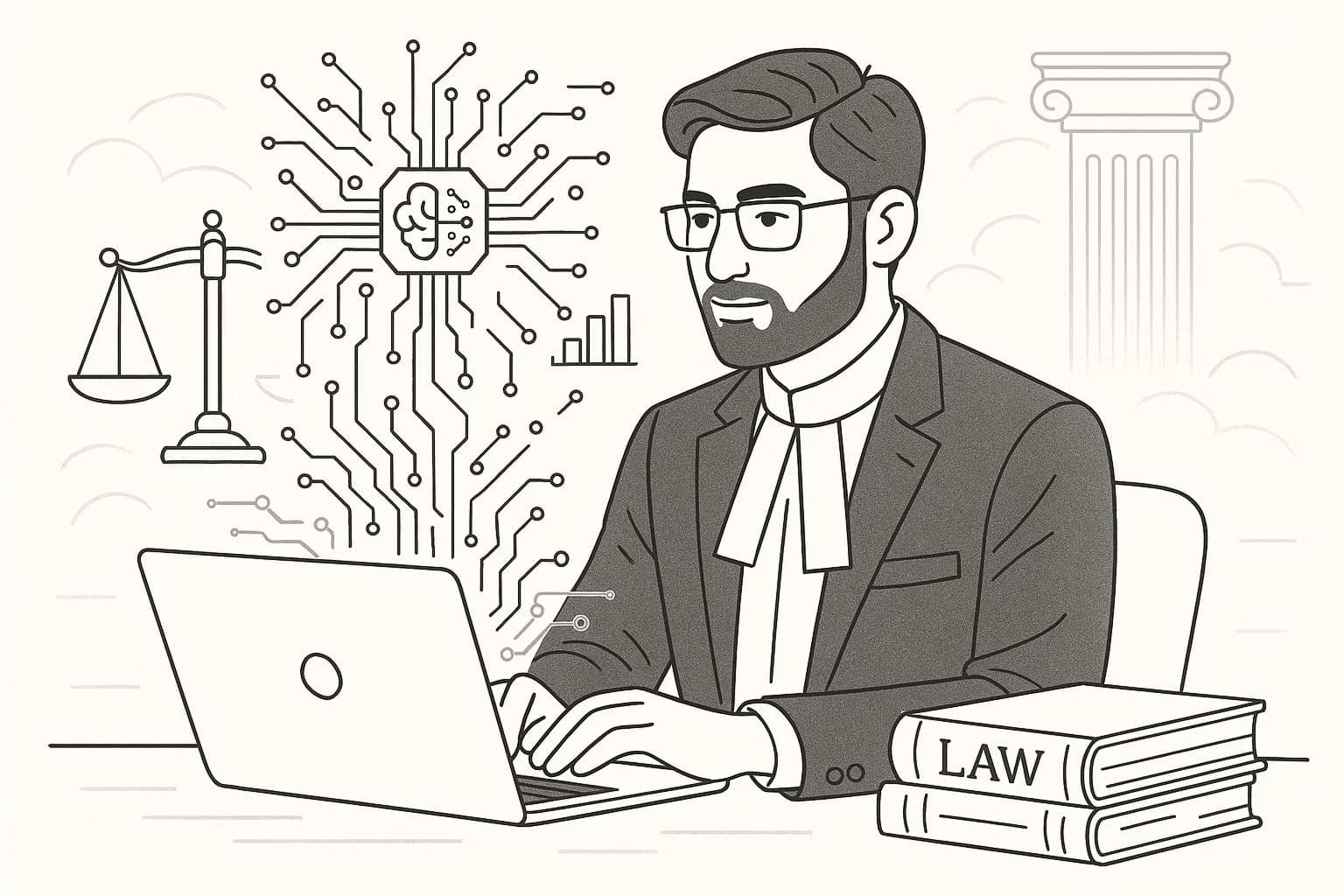Jun 02, 2025
AI 101 for Lawyers: Breaking Down the Basics
Artificial intelligence is transforming law. This guide breaks down how AI helps lawyers with research, drafting, and analytics plus key ethical considerations to stay relevant in 2025.

The legal world is changing fast.
What once took hours of flipping through law books can now be done in minutes using AI tools.
If you’ve heard the buzz around AI but don’t know where to begin, this guide will help you understand the basics in a simple, practical way. Whether you work solo or in a large firm, learning about AI isn’t just about being trendy. It’s about staying relevant.
What Is AI in Law?
Artificial Intelligence (AI) refers to computer systems that can think and work like humans.
In law, AI can help you:
- Analyze large volumes of case law quickly
- Draft contracts and legal documents using templates
- Predict case outcomes based on past data
- Review contracts for risks and compliance
AI doesn’t replace lawyers. It supports you, helping you do more in less time.
Why Lawyers Should Care About AI
Because your clients care.
Clients now expect faster work, accurate results, and lower costs. AI helps deliver all three.
More importantly, AI gives you more time for strategy, client interactions, and critical thinking the parts of legal work machines can’t do.
How Lawyers Are Already Using AI
1. Legal Research
Platforms like Order.law and CaseMine help you:
- Search relevant case law faster
- Understand judgment trends
- Identify key precedents
Example: Instead of reading through 200 cases to find one citation, an AI tool can give you the top 10 most relevant results in seconds.
2. Drafting and Reviewing Documents
Tools like LegalMation and LawGeex can:
- Create contracts or NDAs using templates
- Highlight risky or unusual clauses
- Check documents for regulatory compliance
Example: A junior associate might take 3 hours to draft a lease. An AI tool can do it in 10 minutes, ready for final review.
3. Predictive Analytics
Platforms like LexMachina use past case data to predict possible outcomes.
Example: Litigation teams can evaluate whether to settle or go to trial based on similar cases.
4. E-discovery
AI can scan thousands of documents and emails to:
- Find relevant evidence
- Remove duplicates
- Flag key terms and red flags
How AI Works (Without the Jargon)
Most legal AI uses two core technologies:
- Natural Language Processing (NLP): Helps machines read and understand legal language, like judgments and contracts.
- Machine Learning (ML): Learns patterns from data and improves over time.
The more you use these tools, the smarter they get. They adapt to your work style and preferences.
Common Myths About AI in Law
❌ “AI will replace lawyers” → No. It’s like having a super-efficient paralegal.
❌ “It’s only for big firms” → Wrong. Many tools are now affordable and cloud-based.
❌ “You need to be a tech expert” → Not true. Legal AI tools are built for lawyers, not coders.
How to Get Started
- Start small – Try AI tools for legal research first.
- Take demos – Most tools offer free trials or walkthroughs.
- Learn the basics – Take short online courses on AI for lawyers (Coursera, Udemy, etc.).
Risks and Ethical Concerns
AI is powerful, but you need to use it carefully:
- Bias: If the training data is biased, predictions might be too.
- Confidentiality: Use platforms that follow strict data privacy laws.
- Over-reliance: Always review AI outputs before sharing with clients.
The Bar Council of India and global legal bodies are working on AI ethics guidelines, so stay updated.
Final Thoughts: AI Is a Tool, Not a Threat
AI won’t make you less of a lawyer.
It will make you more effective by taking away repetitive tasks and letting you focus on strategy, advocacy, and justice.
Whether you adopt it now or later, the shift is inevitable.
The sooner you learn, the better prepared you’ll be.